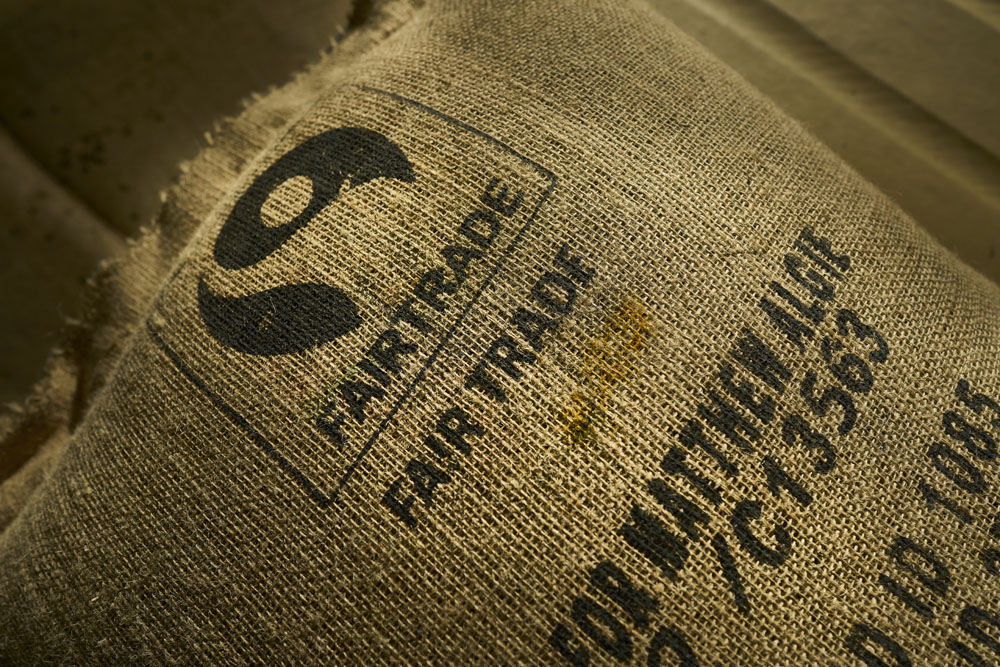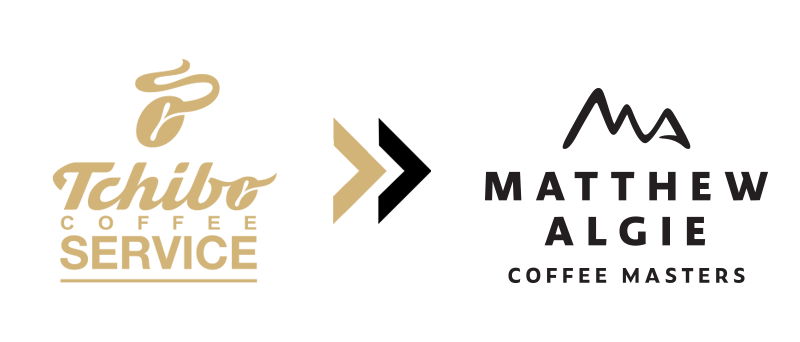Our Journey With Fairtrade.
December 17th, 2024 | Other
This year marks a significant milestone in the journey of fairness and sustainability as we celebrate 30 years of Fairtrade. We take pride in being pioneers of sustainable coffee sourcing and there’s no better time to reflect on our Fairtrade story.
Amy Oroko, our Sustainability Manager, discusses the evolution of Fairtrade and its impact on our business, the coffee industry, and coffee-growing communities worldwide.

Amy Oroko our sustainability manager, working with Fairtrade coffee farmers.
Looking back: Why We Embraced Fairtrade
From the outset, Fairtrade has been more than just a certification; it’s a commitment to ensuring farmers receive fair compensation for their labour. Amy explains: “Fairtrade provided a seal of approval that farmers were producing coffee in line with high ESG (Environmental, Social, Governance) standards. The Fairtrade Minimum Price acts as a safety net, while the Fairtrade Premium – an additional 20 cents per pound of coffee – empowers cooperatives to invest in their communities and businesses.”
Fairtrade became a way to engage customers meaningfully on issues of fairness and sustainability. Events like Fairtrade Fortnight highlight consumer interest in ethical practices, and our partnership with the Fairtrade Foundation has allowed us to amplify our message through value-added projects. This collaboration has solidified our commitment to responsible sourcing and driven impactful change in coffee-growing regions.

Juan Mamami, a dedicated coffee farmer, produces Fairtrade, triple-certified coffee.
Evolving standards: How Fairtrade has pushed us forward
Fairtrade’s evolving standards have challenged us to improve our practices continuously. Amy notes that these updates, such as adjustments to the Fairtrade Minimum Price, ensure farmers can achieve sustainable incomes despite rising production costs.
“Fairtrade is also increasing its human rights due diligence requirements, aligning with evolving EU and UK legislation,” she says. “This pushes us to remain accountable and sustainable as a business.”
This ongoing evolution has strengthened our relationships with suppliers. By building trust with cooperatives and being a reliable buyer, we’ve laid a strong foundation for success. Looking ahead, our ambition to offer 100% certified coffee by 2040 aligns with our Net Zero by 2040 goal. It’s a challenging road, but we’re making steady progress.
Pioneering in Fairtrade: Our industry impact
We have a history of leading the way in Fairtrade coffee. In 1997, we launched the UK’s first Fairtrade espresso, followed by the world’s first triple-certified espresso in 2004. Over the years, the coffee industry has evolved, with the rise of models like direct trade prompting new conversations about responsible sourcing.
“There’s been tension at times between certification and direct trade models,” Amy reflects, “but they’re not mutually exclusive. Certification and meaningful partnerships can go hand-in-hand.” As consumer demand for transparency grows, so does scrutiny of supply chains, making Fairtrade more relevant than ever.
Early adoption of Fairtrade principles meant embedding responsible practices long before they became industry norms. Today, even brands not traditionally associated with high-quality coffee are embracing Fairtrade, showcasing the growing importance of corporate responsibility.

Coffee branch with ripe cherries, showcasing the journey from Fairtrade farm to cup.
Tangible benefits: What Fairtrade brings to the table
Fairtrade has delivered countless benefits to our business and the communities we work with. Our early adoption helped differentiate us in a competitive market, building our reputation for sustainably sourced coffee.
Collaboration with cooperatives like Capucas in Honduras illustrates the tangible impact. Amy highlights: “We’re working on a programme to understand our supply chain emissions and how to deliver reductions at the farm level. We’ve also engaged in projects to increase farmer livelihoods, encourage young people to pursue coffee farming, and promote gender equality.”
Fairtrade’s framework has emboldened us to innovate and drive positive change. It’s not just about a label; it’s about embedding sustainability into every aspect of our business.
Addressing challenges: Costs and customer engagement
Maintaining Fairtrade certification requires effort, particularly in educating customers about its value. While Fairtrade coffee can be more expensive, Amy emphasises the importance of explaining its benefits.
“When cooperatives invest their Fairtrade Premium into improving quality and sustainability, everyone benefits,” she says. By focusing on transparency and education, we’ve built loyalty and strengthened our brand’s reputation for ethical practices.
The road ahead: Fairtrade at the heart of our business
As Amy explains, Fairtrade is deeply embedded in our sourcing approach but remains a dynamic partnership requiring continuous dialogue. “Fairtrade is not a substitute for being a reliable and engaged supply chain partner. It’s a collaborative journey where we challenge each other to innovate and improve.”
Fairtrade’s adaptability and forward-thinking approach, from addressing deforestation to aligning with new legislation, have ensured its longevity as a trusted mark of impact.
We’re proud of our 30-year relationship with Fairtrade and the meaningful change it has driven for farmers, businesses, and consumers alike. As we look to the future, we remain committed to evolving alongside Fairtrade, championing sustainability, and ensuring fairness remains at the core of everything we do. To find out more about our sustainable business practices, you can read our blog all about it here. Our friendly and knowledgeable team is always on hand to answer your questions. You can contact them here.

